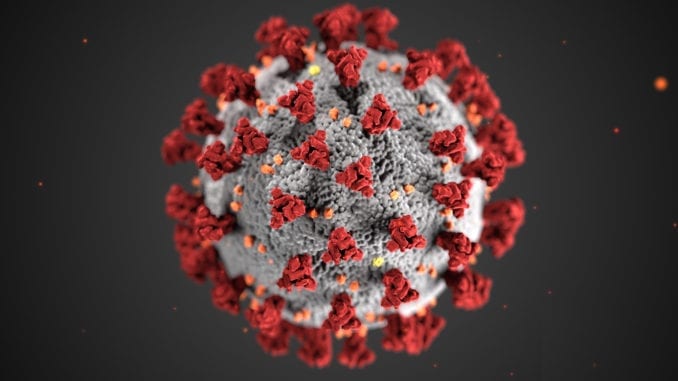
Queen’s University researchers explore lessons learned from COVID-19 and what we need to better prepare for future public health emergencies.

More than three years into a pandemic that claimed millions of lives worldwide and put a strain on the public health sector, researchers need to keep their heads on the future and make sure the world is better prepared to face the next challenge. While it’s hard to guess when or where a new pandemic will arise, scientists know that lessons from COVID-19 can be useful in the future. Researchers at Queen’s University Faculty of Health Sciences are building on this knowledge and leading programs such as the search for new antivirals and evaluating the impact of vaccination on female reproductive health.
Dr. Che Colpitts , assistant professor in the Department of Biomedical and Molecular Sciences, is working to develop new antiviral drugs targeting RNA viruses with pandemic potential. These viruses, that include SARS-CoV-2, dengue virus, and others, are often transmittable from animals to humans, which make their spread particularly difficult to predict or prepare for. “While conventional antiviral development has focused on a ‘one bug, one drug’ approach, we aim to develop broadly acting antivirals that may be effective against multiple unrelated RNA viruses, including those that may emerge in future,” she says. “Our goal is to identify shared approaches that viruses use to interact with their target cells in the body to promote virus infection or cause disease”.
One of the strategies tested by Dr. Colpitts is blocking viruses’ attachment to the surface of human cells – the first step of an infection. Her research suggests that an ingredient found in green tea might be effective in blocking virus attachment to sugars that naturally coat our cells’ surfaces. The compound was tested in pre-clinical models against multiple coronaviruses, including SARS-CoV-2, MERS-CoV, and bat coronaviruses. Dr. Colpitts’ team is also working on how to boost immune responses in the body to help cells resist viral infection and investigating the body’s inflammatory response during several viral diseases, including COVID-19, dengue, and Ebola.

Vaccination and reproductive health
With a strong leadership on women’s reproductive health research, the Department of Obstetrics and Gynecology at Queen’s University is thoroughly investigating whether COVID-19 vaccination might have any impact on miscarriage and infertility – a rumour that had stopped some women of reproductive age to get their shots. Associate professor Dr. Maria P. Velez is using health administrative databases across Ontario to study the effect of COVID-19 vaccination on spontaneous miscarriage, induced abortion, infertility, and abnormal menstrual bleeding.
“Our study will better inform female individuals, healthcare providers and the health system about the impact of the COVID-19 vaccine on reproductive outcomes,” says Dr. Velez. “The algorithms that we have developed to identify early pregnancy events in large databases will prepare us to obtain quick data about the safety of vaccines close to or during pregnancy on reproductive outcomes. Our study reinforces the importance of including pregnant women in new vaccine clinical trials, and rapid dissemination about vaccine safety around the time of conception”.

Queen’s University is a Member of Research Canada: An Alliance for Health Discovery and Sponsor of Research Canada’s 18th Annual General Meeting: Fulfilling the Promise of Collaborative Advocacy Leadership. Visit rc-rc.ca to learn more.
